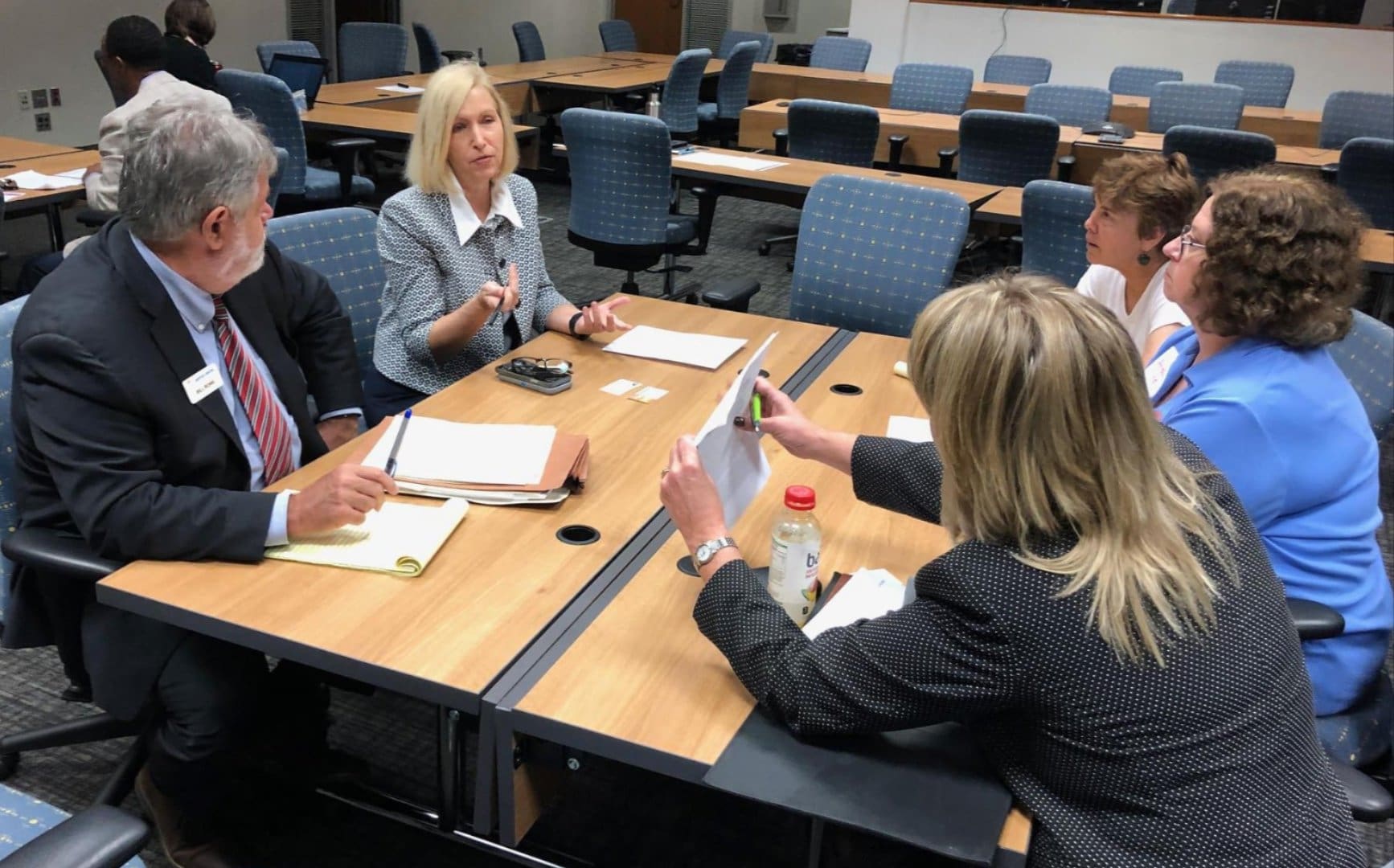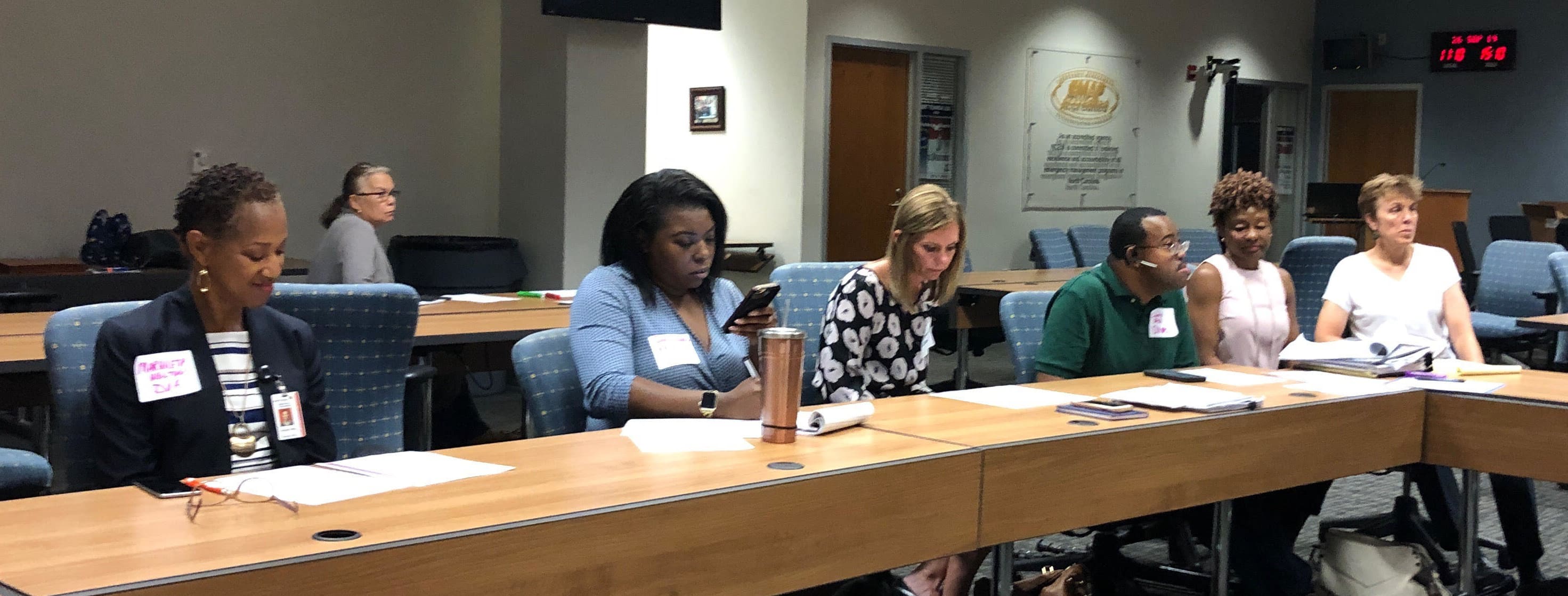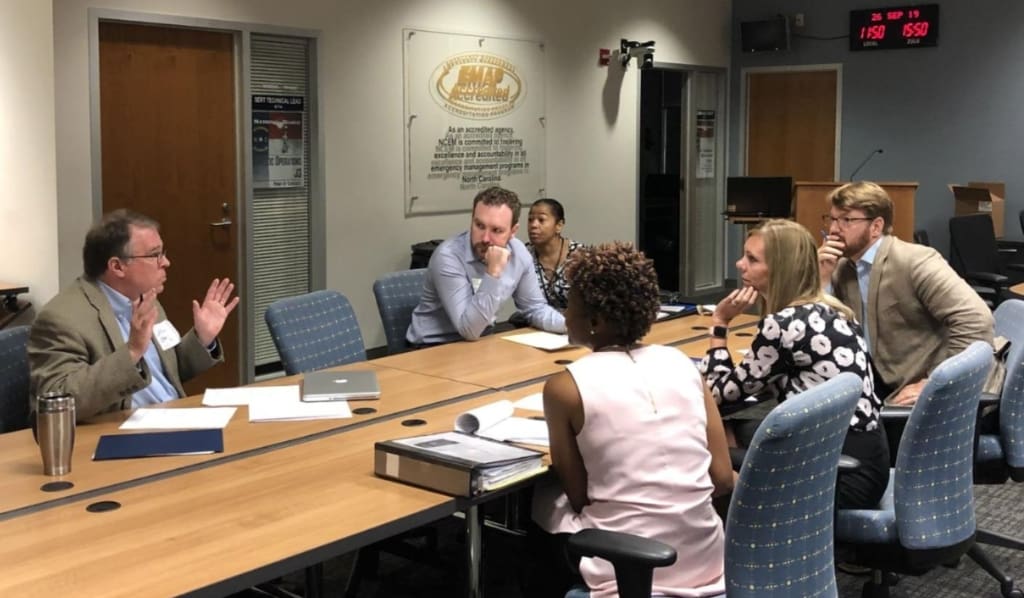On Thursday, September 26, NCHC Executive Director Samuel Gunter chaired his third meeting of the reconstituted Housing Recovery Support Function (RSF) of the State Disaster Recovery Taskforce (SDRT). After reports from Jeremy Collins, the Director of the Governor’s Office of Public Engagement and Laura Hogshead from the NC Office of Recovery and Resiliency (NCORR), the RSF split into smaller groups to begin work developing policy recommendations for 4 priority issues identified in the previous meeting:
- Affordable housing options for very low income families;
- Zoning and land use decisions that impact housing production;
- Construction labor shortages and workforce development; and
- Community Development and housing counseling organizational infrastructure.

Over the course of the next two months, these groups will meet and provide recommendations that will be discussed by the Housing RSF and then submitted to NCORR and NC Emergency Management in early 2020. If you would like to provide feedback to the NC Housing Coalition that could benefit the work of these groups, please fill out the following form.
Jeremy Collins reported on the 2 months of listening sessions that the Governor has undertaken in partnership with the NC Office of Recovery and Resiliency, Hometown Strong, DHHS and others. By the time you read this, 13 of the 16 sessions will have taken place with an average of 42 people at each event. One of the common themes that Jeremy noticed throughout the meetings was the lack of access to information — “folks just don’t know about [long-term recovery resources]. The resources exist, but they aren’t making it to the ground.” The remaining meetings have yet to be scheduled, but will be in October in New Hanover, Carteret, and Edgecombe counties.
Laura Hogshead also updated the group on the ongoing recovery work of her office. To date, $129 million in Matthew recovery funds have been committed. NCORR is also working on standing up the Community Development Block Grant for Disaster Recovery (CDBG-DR) buyout program and the small rental program in the coming months. Initially, $25 million will be dedicated towards buyouts, although more is anticipated in the second tranche of Matthew money designated for mitigation. It is crucial to note that the CDBG-DR buyout program is different from the Hazard Mitigation Grant Program (HMGP) through FEMA. HMGP funding goes through local governments. The CDBG-DR goes directly from the state to the homeowner, although NCORR is soliciting feedback from local governments on 12 priority zones that will be the focus of targeted campaigns to get entire neighborhoods out of a geography that has regularly flooded during recent storms. This money, which is tied to the pre-disaster value of the home will also be paired with relocation assistance. The small rental program already has 270 landlords who have applied for assistance.
Finally, the state is closer to accessing the second tranche of federal disaster relief funds for Hurricane Matthew. The $168 million designated for mitigation was awaiting the federal register notice that would outline allowable activities for this funding, which is different from typical post-disaster HUD funding. Now, the state is busy writing a plan to be approved by HUD. The development of this plan will include community engagement meetings in:
Robeson County
Oct. 14, 2019
Robeson Community College
A.D. Davis Auditorium (Building 15)
5160 Fayetteville Rd.
Lumberton, NC 28360
Edgecombe County
Oct. 15, 2019
Edgecombe Community College
Keihin Auditorium
2009 W Wilson St.
Tarboro, NC 27886
Craven County
Oct. 16, 2019
Grover C. Fields Middle School
Performing Arts Center
2000 Dr. Martin Luther King, Jr. Boulevard
New Bern, NC 28560
The state’s goal is to submit its action plan for approval by the end of the year.









